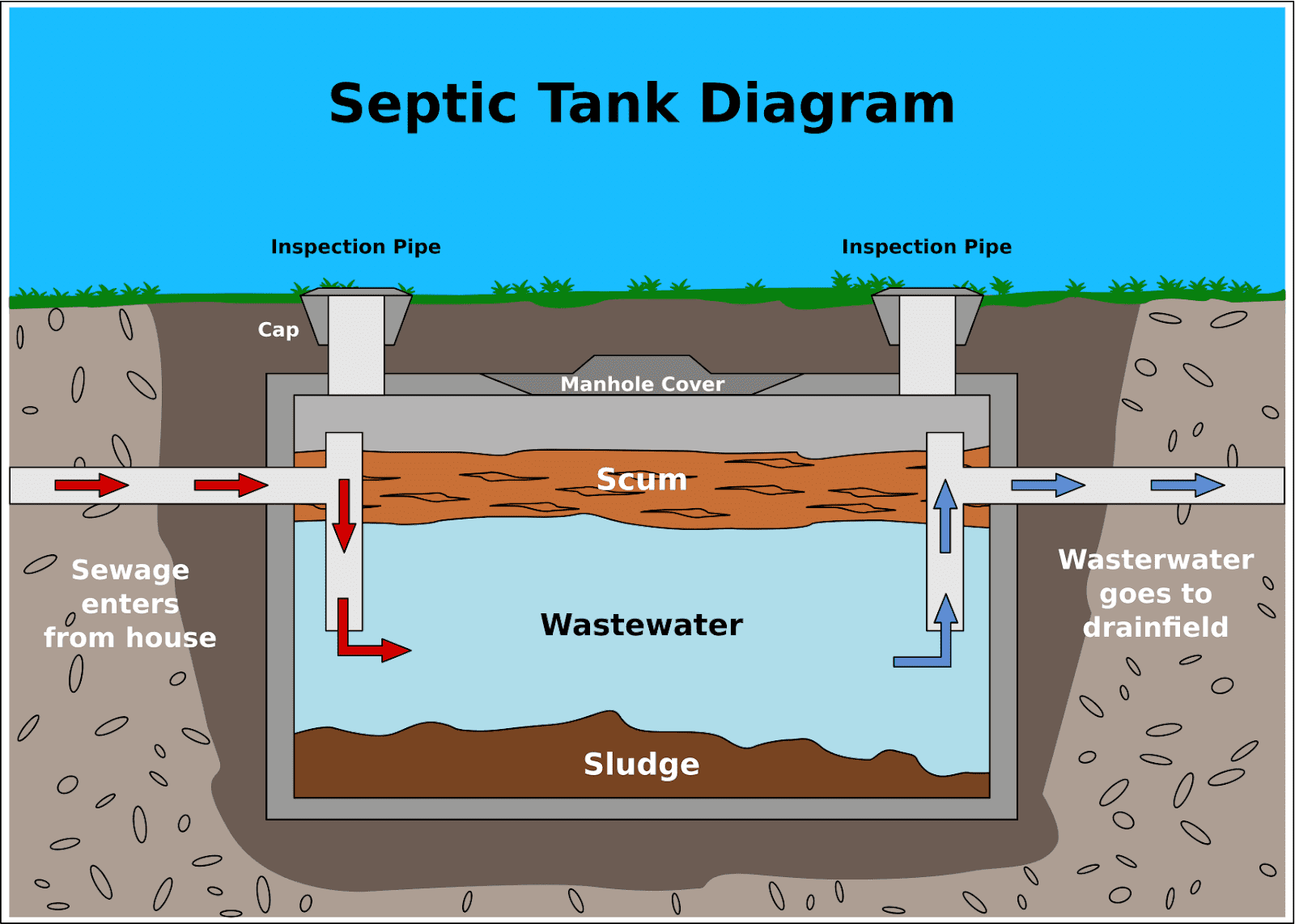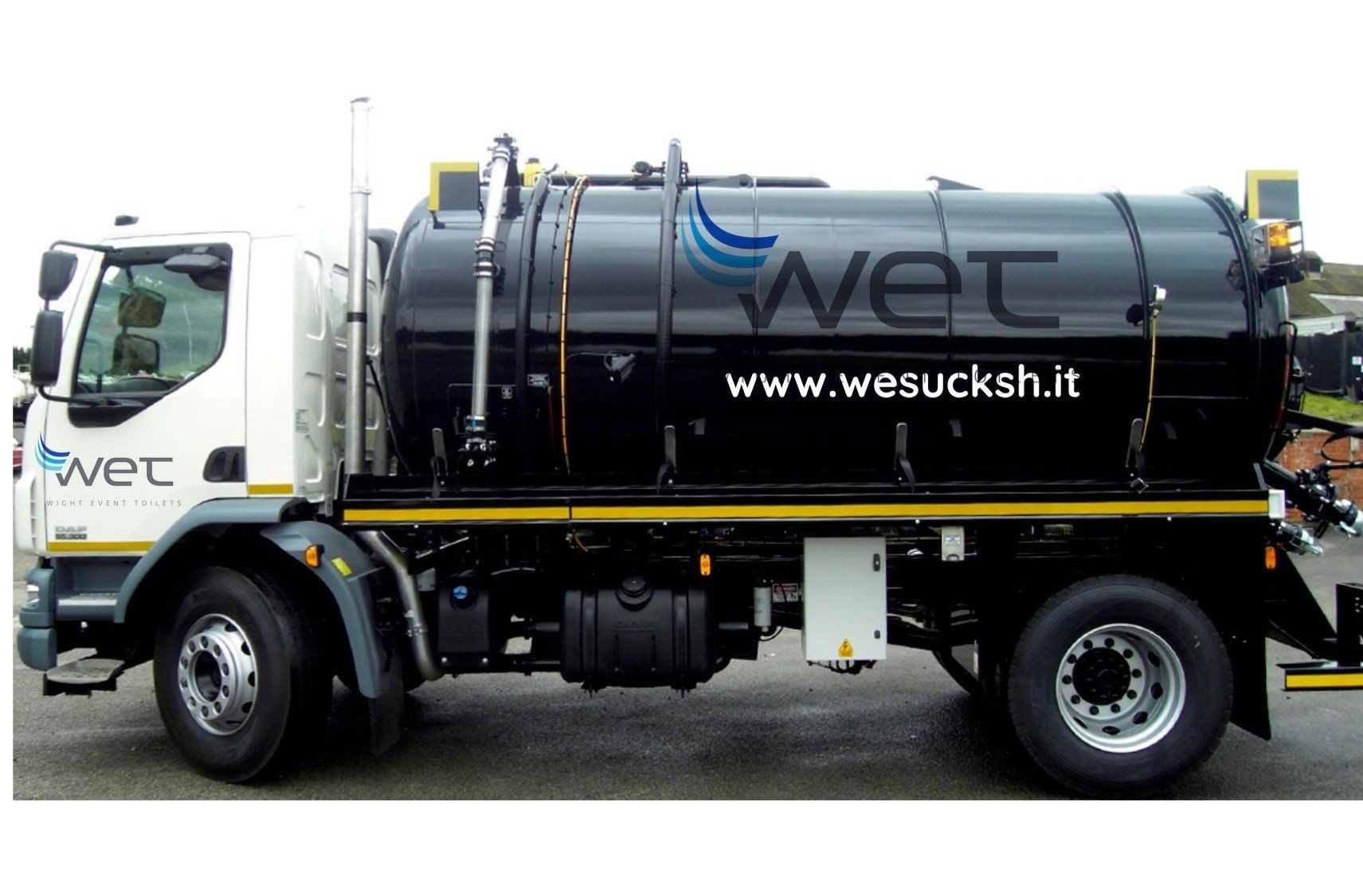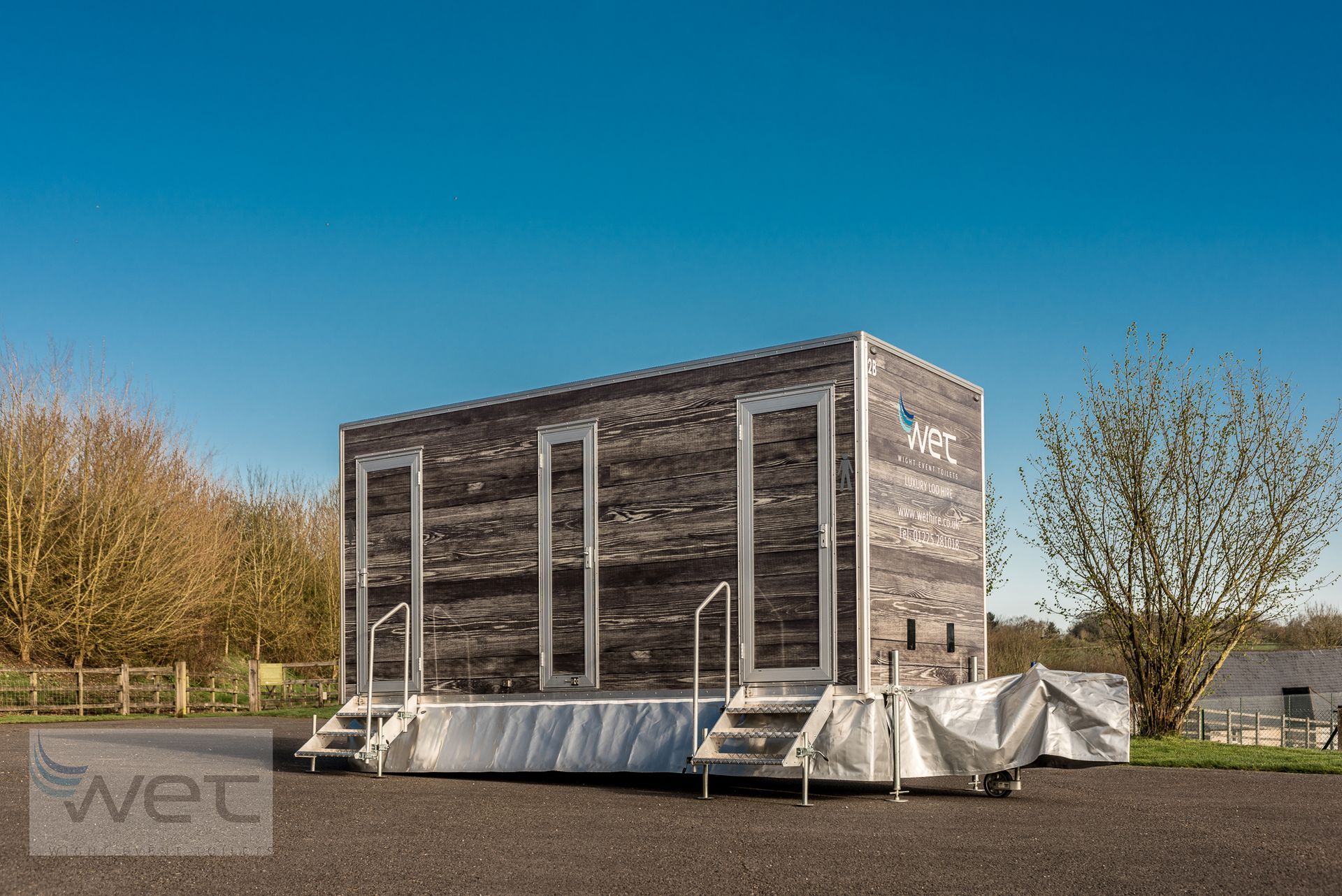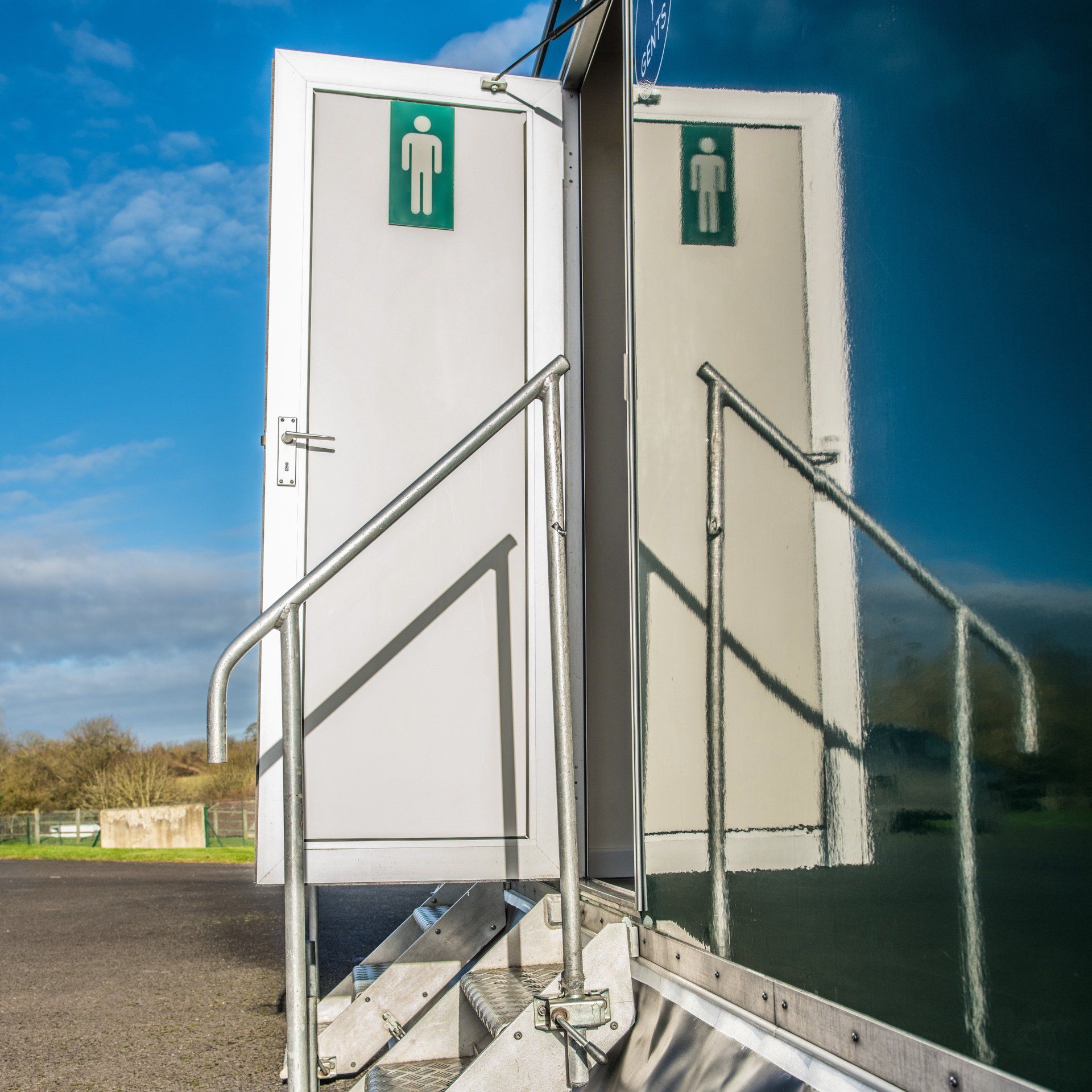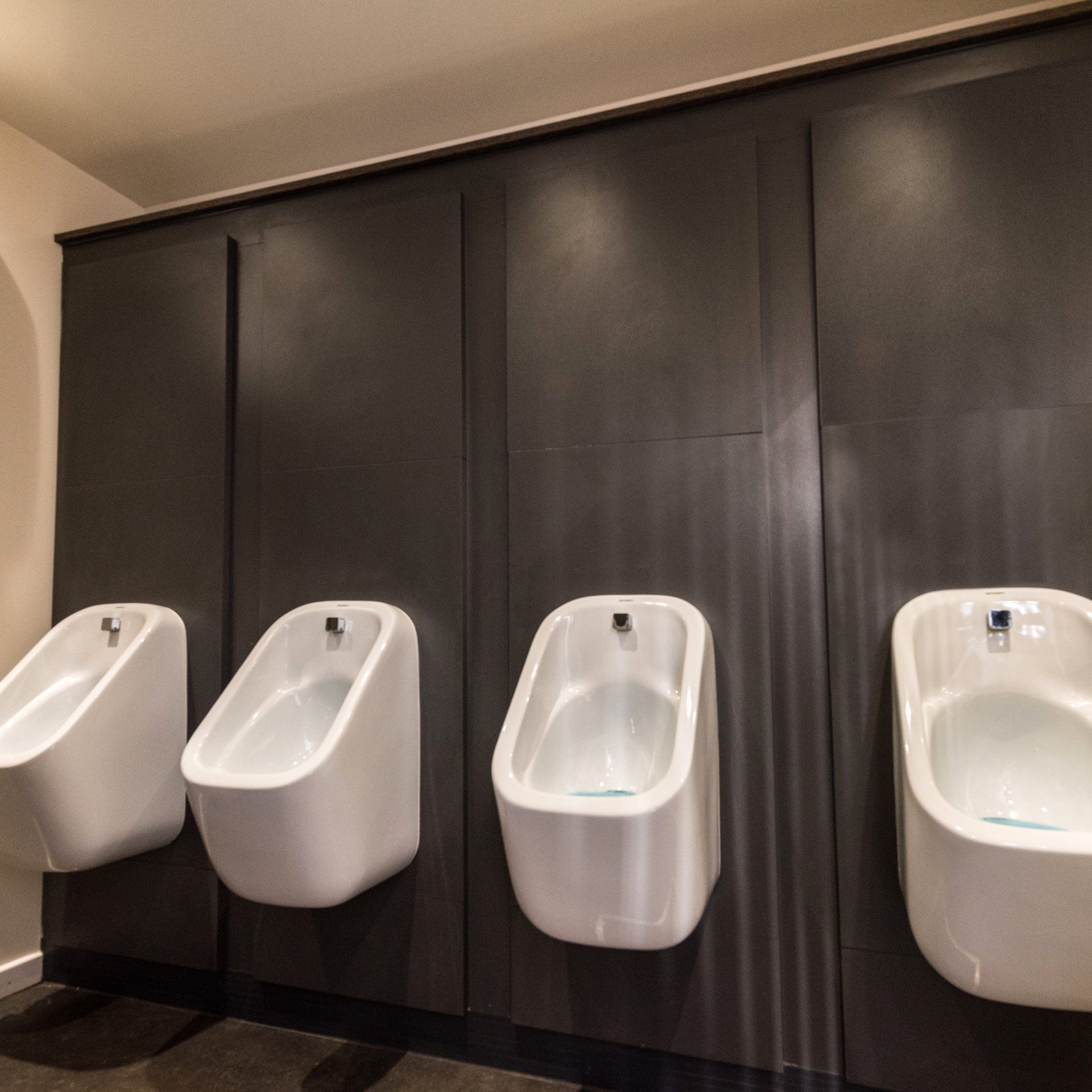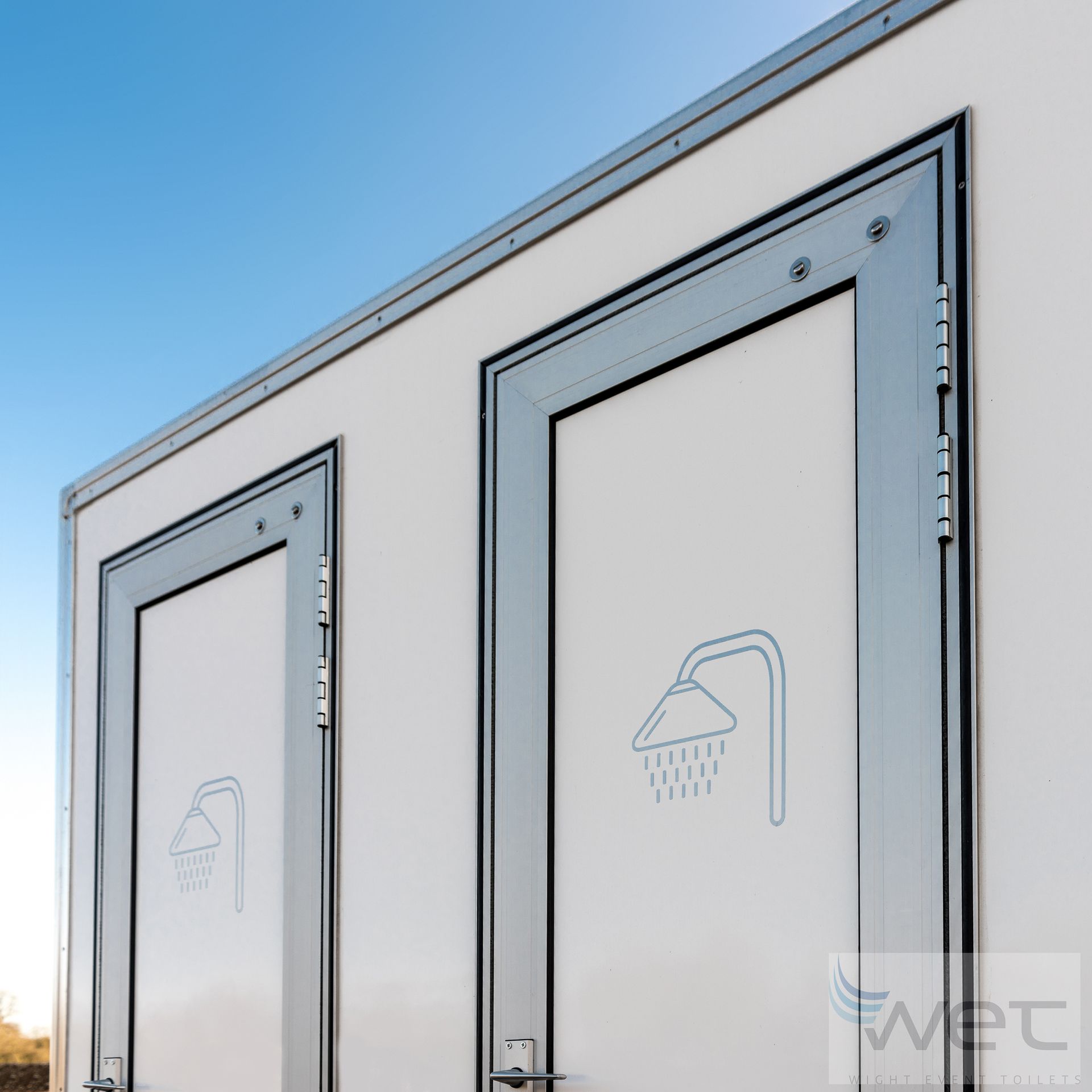Septic Tank and Cesspool Emptying: What you need to know
All you Need to Know About Septic Waste Disposal
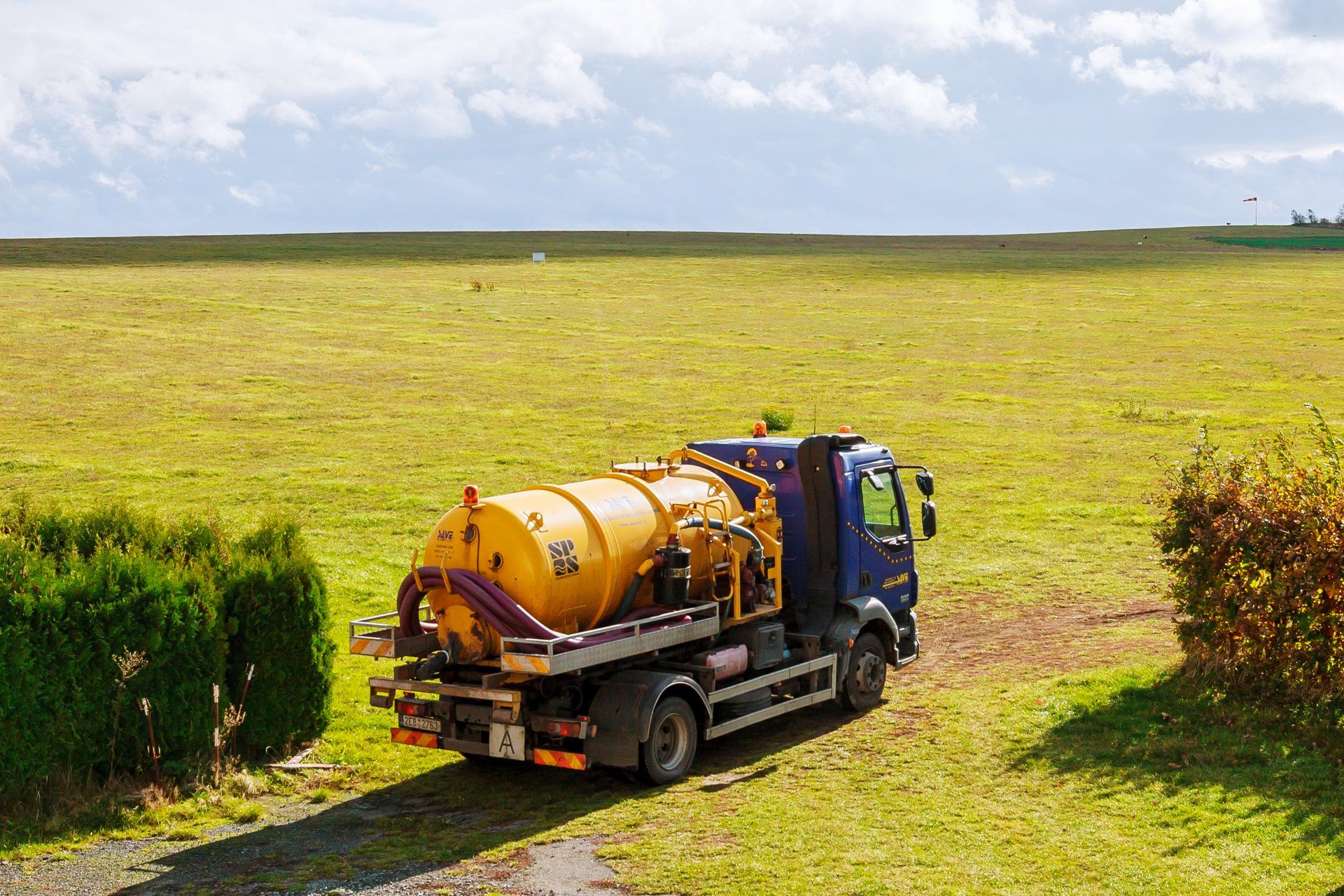
What happens to the waste when you flush the toilet in your home?
Depending on where you live, the waste may go into a septic tank or cesspool. It’s important to keep this tank clean and empty it frequently in order to avoid any problems.
Here are some of the questions our customers most commonly ask us about septic tanks and cesspools, and how to best look after them.
- What is a septic tank?
- Do all homes have septic tanks?
- What is a cesspool, and how is it different to a septic tank?
- Why do septic tanks need to be emptied?
- What happens if I don’t get my septic tank or cesspool emptied?
- Whose responsibility is it to empty a septic tank or cesspool?
- How can I tell if my septic tank or cesspool needs emptying?
- How often should you get your septic tank or cesspool emptied?
- What is involved in emptying a septic tank or cesspool?
- Can I empty a septic tank or cesspool myself?
- How can I prolong the life of my septic tank or cesspool?
- How much does emptying a septic tank or cesspool cost?
- WET Hire: Keeping your septic tank and cesspool clean and safe
What is a septic tank?
A septic tank is a tank that collects, treats, and disposes of wastewater from households and other buildings. For example, from the toilet, shower, bath, and any sinks.
It’s a large, watertight container, often made of fibreglass, concrete, or polyethene. It’s buried in the ground and connected to the plumbing system of a building.
The septic tank separates solids from liquids, with the solids sinking to the bottom of the tank. The liquids settle in the middle, with lighter particles like oil and grease floating to the top. Bacteria in the tank break down the solids, while the liquids are treated and flow into an area of soil known as a septic drain field (or a leach field).
The liquids flow through the septic drain field, where they are filtered and purified by the soil, meaning they are safe enough to return to the ecosystem.
Do all homes have septic tanks?
No. Septic tanks are most commonly found in areas where homes can’t be connected to the mains sewage line. For example, homes in rural areas.
It’s estimated that one in ten homes in the UK uses a septic tank to dispose of wastewater.
If you’re not sure if your home has a septic tank, it’s worth checking your property records. Alternatively, if you have a large rectangular cover in your garden, or have multiple manholes around the perimeter of your house, it’s a sign that there’s a septic tank there.
What is a cesspool, and how is it different to a septic tank?
A cesspool (also known as a cesspit) is a pit or underground container that stores untreated wastewater.
Unlike a septic tank, a cesspool doesn’t treat the wastewater; it just holds it until it’s ready to be disposed of.
Cesspools are typically installed on properties that don’t have the space available to install a septic drain field.
Why do septic tanks need to be emptied?
Only the liquids leave the septic tank. The solids stay in the tank, where they accumulate over time.
Even though the bacteria reduce the volume of the solids, they still need to be removed before they cause issues.
What happens if I don’t get my septic tank or cesspool emptied?
When the solids start to build up, they can clog the pipes. This means that liquid can’t escape to the septic drain field, and it starts to back up into the home.
A build-up of solids can also damage the septic drain tank, leading to cracks. This can cause liquids to seep into the soil, which can have serious environmental issues.
Whose responsibility is it to empty a septic tank or cesspool?
The homeowners.
If you rent a property, it’s worth checking the tenancy agreement to see whether the responsibility is yours or your landlord’s.
How can I tell if my septic tank or cesspool needs emptying?
These signs may mean it’s time to get your septic tank or cesspool emptied:
Your toilets take longer to flush- Your sinks drain more slowly
- You hear gurgling coming from your pipes
- Smells are coming from your drains
- Waste starts to pool above ground where your septic drain field or cesspool is
- Plants and green grass start growing around your septic tank or cesspool – this means water is leaking and hydrating the surrounding area
Of course, it’s much better to have a regular emptying schedule, to avoid these problems occurring in the first place.
How often should you get your septic tank or cesspool emptied?
This depends on the size of the tank, how much wastewater is generated, and how many people live in the property. A larger septic tank will need emptying less frequently than a smaller one.
Cesspits need emptying more regularly than septic tanks. While liquids leave the septic tank, nothing leaves the cesspit, meaning it fills up more quickly.
As a rule of thumb, septic tanks should be emptied every one to five years, while cesspits should be emptied every six weeks to a year. A professional cleaning company will be happy to recommend how often your tank or cesspool should be emptied.
What is involved in emptying a septic tank or cesspool?
The most efficient way is to use a pump with a long, flexible hose to remove the solids from the tank.
This waste is then disposed of, leaving the septic tank or cesspool empty and ready to be refilled.
Can I empty a septic tank or cesspool myself?
No. New rules were introduced in 2020, meaning that anyone who is not licensed to dispose of waste can’t empty a septic tank. This is because the waste needs to be disposed of safely, in a way that will not harm the environment.
It’s important to know what you’re doing when emptying a septic tank or cesspool, as it can be dangerous. The tank can contain extremely strong and toxic fumes when opened, which can potentially be fatal if you’re not sure what you’re doing.
A professional company (like
WET Hire) is licensed for waste removal and can empty your tank quickly, safely, and at a time convenient to your needs.
How can I prolong the life of my septic tank or cesspool?
While it’s important to get your septic tank or cesspool emptied regularly, there are steps you can take to prolong its life.
- Only flush pee, poo, and toilet paper. Don’t use the toilet to dispose of items like sanitary products, cigarettes, or makeup wipes, as these can block the pipes in your tank
- Don’t put food down your sink
- Avoid pouring chemicals like bleach, disinfectants, or drain cleaning products into your system. This can kill the bacteria in the tank
- Reduce your water usage, for example, turning off the water while brushing your teeth, or avoiding running a half-empty dishwasher
- Avoid sending large amounts of water to your septic system in a short amount of time. For example, if you have lots of washing to do, stagger it out rather than doing it all in one day
- Don’t park cars or plant trees on your septic drain field; this can reduce its efficiency. It’s also important to remember that snow and ice can make your septic drain field less effective
When looked after, a septic tank or cesspool can last between 30 to 40 years.
How much does emptying a septic tank or cesspool cost?
It depends on the size of the tank that needs to be emptied, how far the company has to travel, as well as how accessible the septic tank or cesspool is.
At WET Hire, we’ll provide you with an affordable, bespoke quote. This means you can make sure your septic tank or cesspool stays clean, safe, and efficient at all times.
WET Hire: Keeping your septic tank and cesspool clean and safe
As well as luxury toilet hire across the South East, we also specialise in cesspool and septic tank cleaning and emptying.
No matter where you are based, or the size of your tank, we’ll empty it for you, meaning you avoid the risk of overflow, blockages, and damage to the environment.
Find out more about the
septic tank emptying and cesspool emptying services we provide. And of course, if you have any additional questions about your septic tank or cesspool, we’re more than happy to help.
